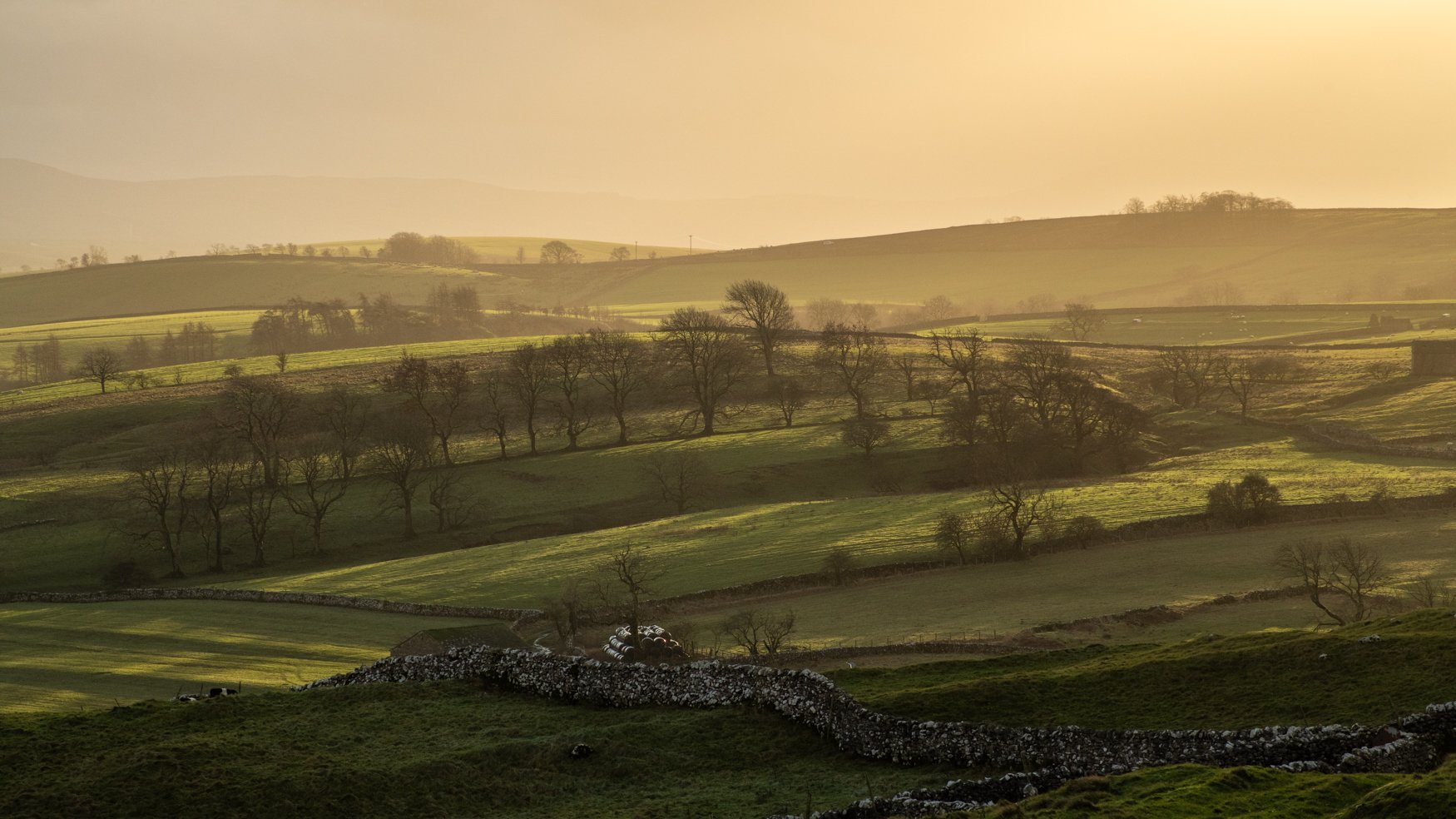
Our Upland Commons Themes
The Foundation for Common Land's "Our Upland Commons" project explored key themes critical to the future of upland commons. These themes focused on sustainable stewardship, building community resilience, and ensuring the cultural and natural heritage of commons is valued and protected for generations to come. Together, they shaped the vision for the project. Explore this in more detail below.
Theme A: Collaboration
Co-creating a sustainable future for Common Land
Commoning involves the collaborative management of land – a practice that is rare in modern life. Independent farm businesses interdepend with their neighbours so they can farm remote hill areas. Commons are very large tracts of land with sensitive habitats, rare species and historical monuments: therefore the prize for society and the environment (carbon storage, water quality, biodiversity) of effective management is very high.
When collaborative management breaks down (say over financial pressure), land and communities suffer. Farmers can only access payments if all partners comply, so once one player withdraws several farmsteads cease to be viable. The outcome is unsustainable overgrazing (to self-generate lost income) or farmers ceasing to graze at all, which allows bracken and other dominant plants to engulf the delicate ecosystems that rely on appropriate grazing.
There is only one thing which makes upland commons different from any other piece of upland farmland and that is the collaboration intrinsic in the ancient tradition and practice of commoning. Securing and supporting this collaborative management is vital to the sympathetic management of commons and preservation of the heritage they hold.
Experience proves that a shared vision for common land allows much improved management. Our Common Cause will facilitate the delivery of shared Visions for 12 areas of Common Land and develop Visions for a further four new areas, and train and engage over 100 conservationists, and volunteers who will participate in surveys and conservation work. Outcomes will be:
Shared management plans, and conflicts resolved through positive dialogue using a ‘Through my Eyes’ approach of sharing individual perspectives;
Volunteers, communities and Commoners working together on collaborative projects – including projects to trial new approaches (shepherding trial, joint monitoring project), and to improve infrastructure for management (improvements for shepherding and gathering, traditional boundaries);
Shared understanding and co-operation between landowners, conservationists and commoners.
Collaboration includes 3 sub-projects:
Theme B: Resilience
If Common Land is to thrive, and a way of life is to continue, Commoners must have the skills and support they need, and policy must recognise how the grazing of Common Land works.
Our Common Cause will enhance resilience by:
Better skilled and supported Commoners, through developing learning hubs and support networks, and via a dedicated ‘resilience’ fund;
Young people entering the life with the skills and knowledge for sustainable, high nature value farming;
Better representation nationally, and to policy makers, at a critical time for UK farming;
Preparing commons for the new Environmental Land Management Schemes – working with Commoners Associations to facilitate ‘preparedness’ for the new agric-environment schemes;
Trialling and commons-proofing Payments By Results (PBR) for an upland common.
Resilience includes 3 sub-projects:
Theme C: Commons For All
Most people have little knowledge of Commoning, nor Common Land, including the millions who enjoy the Lake District, Dartmoor and other well-loved areas.
The ‘visiting public’ miss the history and meaning of landscapes they explore. At the same time the connection between Common Land and poverty has been lost: too few people on low incomes explore Common Land, nor know it existed to provide for the dispossessed (hence ‘common’ people).
If more, and different people, engaged with Common Land and what it has to offer the public, the public could play a greater role in understanding, supporting and benefitting from Common Land. Our Common Cause will:
Better connect the public with Commoning, and its role in our landscape, environment and history through a programme of public engagement events and activities – including public gathers, open farm days, Take the Common to Town, public sphagnum planting days, Dark Skies, guided walks;
Engage 480 young people from low-income families, who will undertake John Muir Awards with Commoners;
Capture local traditions and folk knowledge, through oral history and archive projects at a local level and provide educational resources to be used by young people in formal settings but also by groups who perhaps cannot physically access commons;
Better connect Commoners to their own heritage, and communicate this to the public;
Deliver an interpretation programme at a national and local level which communicates the many varied aspects of commons and commoning – including Digital diary, Common Land guides, Common land film and site specific interpretation on local commons.
Commons for All includes 3 sub-projects:
Theme D: Commons For Tomorrow
Multiple public benefits are provided by traditional grazing and the management of Common Land: rare habitats and species, ancient monuments, and conservation of soil and water.
Yet where Commoning has declined, or common land not been adequately managed, these benefits are lost. Our Common Cause will deliver:
Conservation of rare habitats (heathland, blanket bog, wet flush, ghyll woodland);
Conservation of flagship species (Whinchat, Wheatear, ring ouzel, Pearl-bordered Fritillary, and others);
Conservation of utilitarian and historic structures on Common Land at risk;
Test innovative techniques for maintaining priority habitats through bracken management, peat and wetland restoration, increased tree cover through natural regeneration and planting in appropriate areas;
Develop and trial a hill farming carbon footprint calculator, measure carbon footprint across 15 commons and adopt measures to reduce GHG emissions.















